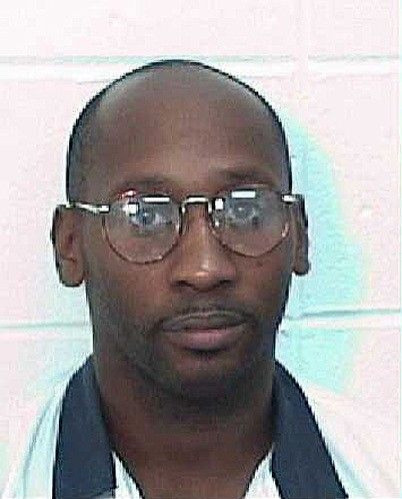Examining the Troy Davis Case: Is there Too Much Doubt? [VIDEOS]

Most people never see death coming, but that is not the case for Troy Davis. The Georgia death row inmate knew for years, since 1991 to be exact, that he was going to die. The only question was, when?
Since being convicted of killing Savannah police officer Mark MacPhail in a Burger King parking lot in 1989, Davis has been threatened with execution. That a Georgia pardons board declined a request for clemency and for a polygraph test, Davis has no other choice but to walk to the death chamber on Wednesday, the fourth time in four years that his execution has been scheduled by Georgia officials.
The circumstances surrounding MacPhail's death have been reported numerous times: the officer was working a security detail when he heard a homeless man being attacked. Police said MacPhail ran to the homeless man's rescue, but the officer was shot in the face and chest before he had a chance to pull his weapon, aacording to reports.
Witnesses to the crime placed Davis, who was only 19 years old at the time, and another man at the scene in the parking lot. They also said the death row inmate was the one who pulled the trigger, releasing the bullet that fatally wounded the police officer.
Davis has said he was at the scene, but it was another man who pulled the trigger.
Throughout the years, he has stuck to his story. A majority of the witnesses have also since recanted their testimonies. They said police had coerced them into implicating Davis as the triggerman.
I got tired of them harassing me, and they made it clear that the only way they would leave me alone is if I told them what they wanted to hear, said Jeffrey Sapp, one of the witnesses who later recanted his story. His recantation along with that of others can be found on the Amnesty International Web site.
I told them that Troy told me he did it, but it wasn't true, Sapp continued. Troy never said that or anything like it. When it came time for Troy's trial, the police made it clear to me that I needed to stick to my original statement; that is, what they wanted me to say. I didn't want to have any more problems with the cops, so I testified against Troy.
Another also said that judging the investigating officer's manner of speaking she thought the officer wanted her to implicate Davis.
From the way the officer was talking, he gave me the impression that I should say that Troy Davis was the one who shot the officer like the other witness [sic] had... I felt like I was just following the rest of the witnesses, said Dorothy Ferrell. I also felt like I had to cooperate with the officer because of my being on parole...I told the detective that Troy Davis was the shooter, even though the truth was that I didn't see who shot the officer.
Another witness has said he implicated Davis after watching TV.
The truth is that Troy never confessed to me or talked to me about the shooting of the police officer, Kevin McQueen said. I made up the confession from information I had heard on T.V. and from other inmates about the crimes. Troy did not tell me any of this... I have now realized what I did to Troy so I have decided to tell the truth... I need to set the record straight.
The Troy Davis case not only seemed to have fallen apart after witness took their testimonies back, but also because there was also a lack of physical evidence. A murder weapon was never found and neither was DNA evidence, according to reports.
I am utterly shocked and disappointed at the failure of our justice system at all levels to correct a miscarriage of justice, Brian Kammer, one of Davis's attorneys, has told the media following the board's rejection of the request for clemency.
Neither did masses of protest rallies sway the five-member panel of the Georgia board, who on Thursday were given the names of 663,000 people asking for Davis to be spared execution. The names were given to the board by Davis' supporters, which include organizations such as Amnesty International, NAACP, and ordinary citizens, along with death penalty advocates and even opponents. Former President Jimmy Carter and Pope Benedict also showed support.
Nevertheless, when Davis is executed on Wednesday evening, the question will be, was justice served?
Davis' supporters and family will say it wasn't because they believe a possibly innocent man was put to death for a crime he has said he didn't commit.
Davis's nephew DeJuan Davis-Correia told NBC News that the kind of justice the family was seeking would've been beneficial for both families.
We have the utmost respect for that family, Davis-Correia told NBC News correspondent Thanh Truong. I also pray at night for that family. We hope they find understanding in their hearts that we are actually trying to get the wrong person out of jail and the right person in.
MacPhail's widow Joan said for 22 years they have waited for justice.
We know what the truth is and for someone to ludicrously say he [Davis] is a victim? she told NBC News. We are the victims. Look at us. We have put up with this stuff for 22 years and it's time for justice today.
Watch a four-part examination of the Troy Davis Case below:
Troy Davis Case: Part One
Troy Davis Case: Part Two
Troy Davis Case: Part Three
Troy Davis Case: Part Four
© Copyright IBTimes 2025. All rights reserved.






















